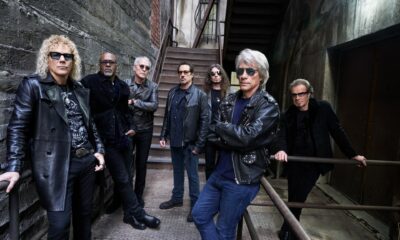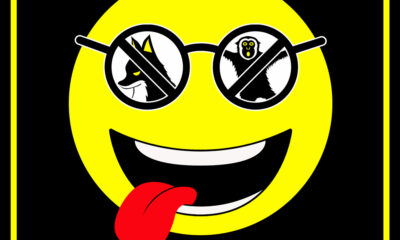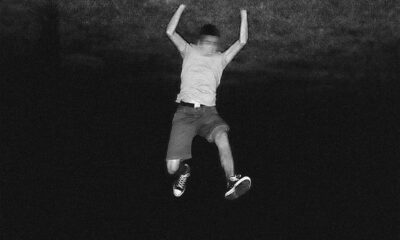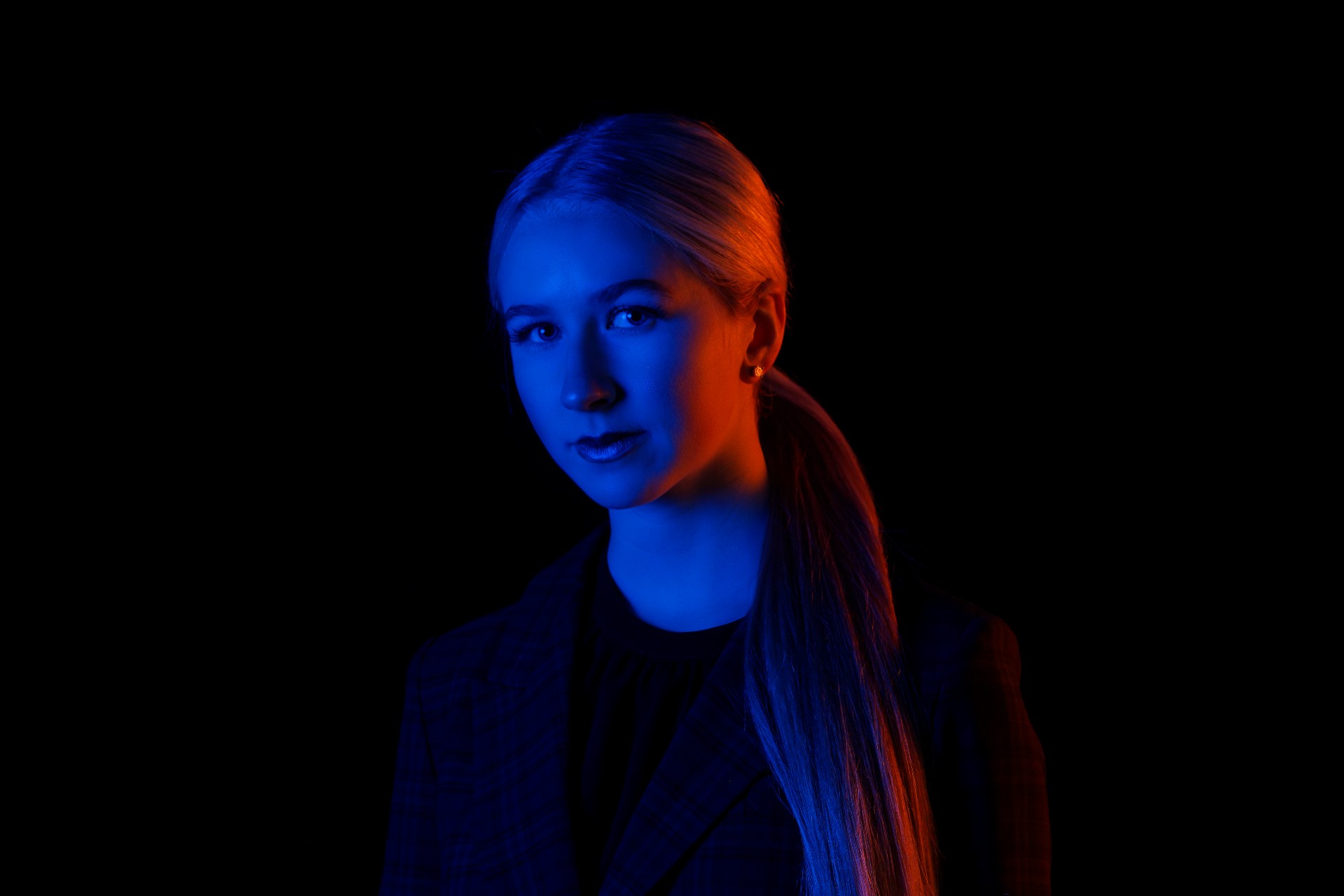Interviews
Interview with Lee Aaron – April 14th, 2016

By Mike Bax
In 1984, I can vividly remember seeing Lee Aaron on my television. She was gorgeous. She played great heavy music. And she was Canadian. All of these things factored into my decision to spend my allowance money on the Metal Queen album, and submit my parents the wondrous ten songs contained within the grooves of that LP for the better part of a year before I moved away to college.
Over the years, Aaron has weathered her way through label changes, the ever changing musical climate, a shift in musical direction towards Jazz for a time, along with being a full-time mom for the last twelve years. This year, Aaron has delivered an eleven-song album of original material entitled Fire and Gasoline. The album, released in March via Big Sister Records (with world-wide distribution through ILS/Caroline), is a throwback to every aspect of music that has touched her life over the past 35 years. Like a summer cocktail, Fire and Gasoline manages to both taste great and go down easy. Aaron has managed to build her musical castle with Fire and Gasoline, now the trick is to see if the people will come or not.
Over the course of forty minutes, Aaron gives us moments of jubilation, melancholy and introspection on what is, to my ears at least, the best material she’s done in a while. Don’t just take my word for it though: you can check out Fire and Gasoline here on Apple Music.
My thanks to Lee Aaron for taking a good chunk out of her evening to speak with me about her new album, her writing process and her family.
www.leeaaron.com
twitter.com/leeaaronmusic
www.facebook.com/Lee-Aaron-Fanpage
Mike: I’m really digging this new album. Congratulations on it.
Lee: Oh, thank you so much. I had a blast making it after a long hiatus for motherhood. When I started working on this album I had that riding the bike feeling. “Oh yeah. I remember how to do this.” This is what I was born to do – make rock n’ roll music. I forgot that for a bit. I really missed the creative process.
Mike: I know some of the subject matter is a little introspective, but overall the vibe is that of a really fun album. I like all of the different genres of music that it touches on. It’s cool that way.
Lee: Thanks. What I hope fans will hear on this album is that it’s a straight ahead rock record. I recorded it with the same guys that play on stage with me. My voice is consistent throughout the whole thing. But I think that you can hear tinges of influences from different eras that make their way onto this record along with all of the things that had influenced me over the course of my career. I have to say that my favourite albums when I was growing up were albums that took you on a musical journey. Not just the cookie cutter hard rock stuff. I’ve talked about this in a couple of interviews. For instance, Fleetwood Mac, you’ve got a few different writers in that band. On one album you’ve got Christine McVie singing the tender piano ballad. You’ve got ‘The Chain’, which is kind of a hardcore blues rock. And then you’ve got ‘Secondhand News’ which is almost a bluegrass song. It sounds like the same band because it is the same band and that is the continuity. But each song has its own entity, its own life. There is something to love about each one of them. I love albums like that. A lot of Elton John albums were like that for me. I wanted to make a record that was more like that.
Mike: Cool. I think you’ve achieved that with Fire and Gasoline. I hear some heavy music here; some rock, some pop and even some indie. ‘Nothing Says Everything’ reminds me a bit of the Smashing Pumpkins mostly in the inflection of the vocals in that song and the way your voice is composed. There’s a little bit of everything in this album, which I think is pretty great.
Lee: That’s interesting that you say that because I had one review recently where it was described as country tinged. That made me scratch my head. But it depends on your own personal background because every reviewer comes from a different place, right? The ear with which you might hear things can be quite diametrically different in other people. So this gentleman thought he heard country inflections on the album. I have to say of all of my influences, country is not one of them. Blues roots, but not country. It’s interesting that he heard it that way though.
Mike: I’d agree with you there. I’m not a country boy either. I like that you worked that little jazz intro into ‘Wanna Be’, which you then quickly turn on its axle into a Ramones styled three-chord rock song.
Lee: That jazz intro was actually about four times as long. It was originally a 30-second long bona fide jazz prelude that I wrote. We’ve talked about putting out a limited edition vinyl where we feature the whole thing. But the opinion of my worldwide distribution was that, especially for Europe, it was just too much. Europe loves their rock, right? So when we were talking about what to do, I was willing to edit it. I’m glad you liked it though. It’s funny, that was an afterthought. I wrote ‘Wanna Be’ in an afternoon, just because I felt like this album needed a power punk-pop song; something really fun. And after I completely recorded the song, did the vocals and we were ready to start mixes, the idea of doing that intro popped into my head. A bit of a crazy idea, sticking a jazz prelude onto a song like that, but I liked that it was a crazy mad scientist thing to do and did it anyway. After a couple of tries he said that we had it. We just tagged it in front of the song and it was done.
Mike: Can you articulate how writing jazz music differs from writing rock and pop?
Lee: Hmm. That’s an interesting question. I haven’t written a plethora of jazz songs; I’ve dabbled in it. I don’t consider myself a wonderfully schooled jazz writer.
Mike: Ah, but even the masters would likely deflect that off, saying they aren’t as good as their peers. But you have written some jazz. So it’s all good.
Lee: Well, it’s definitely a different animal. I’d never write anything jazzy on the guitar, mostly because I’m not a very good guitar player, and a fully admit that. (laughs) But I do write on guitar. It’s just a different way of approaching and thinking of it. There are chord changes that work in jazz that just don’t sound right in rock. I don’t know a better way to describe it than that. With that said though, some of those influences do creep in.
Mike: Fire and Gasoline is your first album of original material since Beautiful Things in 2004. Did you approach the writing of Fire and Gasoline differently than Beautiful Things?
Lee: Yes, actually. Throughout my entire career I have almost always had a co-writing partner. For quite a few years it was John Albani. I can’t tell you how many records we wrote together, but we were writing partners for about 11 years. Slick Chick was a jazz record, and I was looking at doing another jazz-infused record and got together with another writer named Joel Kroeker, on Larry LeBlanc’s (Billboard) advice. Larry mentioned this “great guy out on the west coast” I should connect with. We collaborated on the majority of the songs on Beautiful Things. With this album, I’d taken such a huge hiatus, it’s just not the same situation it was for me back then when I had more of a full time band. It’s a strange time now, I’m sure most acts can say something similar. The touring situation and the whole record industry over the past decade has completely fallen apart. No secret there. This was the first time I’d actually just written songs by myself. I’m willing to admit that maybe it was a lack of confidence before. I know when I was really young and I had a big record contract, I always felt like there wasn’t a lot of faith in my writing capability. With that said, the songs that I co-wrote with my guitarist John were always the singles. It was never the suggested material that the label owned the publishing for. This album, I just wanted it to be the most honest record it can be. There were songs that I’d started working on when I was writing to make a rock record. I’d had a couple of them kicking around for a while. And then I started working with Sean Kelly. I’m sure you know who he is, he authored the Metal On Ice book.
Mike: Oh yeah. I know that name. Of course.
Lee: He’s Nelly Furtado’s guitar player. He’s a wonderful writer. We connected initially over the Metal On Ice book because he was interviewing a bunch of artists for it. It’s wonderful that he did it. In a lot of the rock books that have come out, all of those great Canadian rock bands from the eighties were neglected. The Bruce Cockburns and the Joni Mitchells and the Neil Youngs, they are wonderful. Maybe it’s the conservative Canadian take on things but a lot of those smaller bands are ignored. And Sean created this book that talked about all of these bands that he loved growing up and how they had influenced him. So we connected over the book, and one thing led to another in terms of becoming fast friends which led to playing guitar with me at a few shows, which turned into writing a couple of songs. Unfortunately, he lives in Toronto and I live in Vancouver, but because of modern technology (and when I say modern technology, I’m talking about an iPhone text memo or short recorded messages) he could sit down and hammer out an idea or even just a riff. ‘Fire and Gasoline’ was just a riff that he sent me. I played it and thought I could do something with it – took it into my studio and put a drum beat around it and replayed it on my keyboard because I couldn’t actually play the riff myself (chuckles). Sean and I co-wrote five songs long distance which was a bit of a different process. He’d send me pieces and I’d take them into my studio and complete them with vocals. Some of them I’d add in another part here and there. We wrote five together, and I wrote six all by myself. And I produced the album myself because I thought it would be an interesting concept to just do what I purely wanted to do without a lot of outside influences. In the past when I have worked with producers, there is always that producer’s stamp on the final outcome.
Mike: Absolutely.
Lee: Don’t get me wrong. There are producers I would love to work with. But I didn’t have a lot of choices about that in the earlier parts of my career.
Mike: I’m just going to say that for someone like yourself, a musician who made music through the eighties, what you described to me – the process of making music right now – it’s unfathomable to some people from that era, right? Here’s a message by phone – write to it. You take that piece into your studio space, work on it, send it back and critique it together. That’s an incredible thing, right? To have that ability to create?
Lee: Yes. I’d like to qualify this by saying that while Sean had sent me some text memos and things like that from which I’d do a skeleton demo in my studio, but when he flew out for pre-production, we did it as a band. I just want to make sure that it’s understood that we recorded the album as a complete unit. My band I did play live off the floor on this album.
Mike: Yeah.
Lee: Someone said to me “Oh you don’t have to fly them out. Just do some tracks here and then send it all out to Toronto and let them put guitars on it there.” I wasn’t into that. I wanted us all in the room together. I wanted more of a cohesive sound together recorded for this album.
Mike: And it does sound like that kind of an album. It doesn’t sound like it was put together piecemeal in four different studios in four different parts of the world. Fire and Gasoline sounds like people in a room making music together.
Lee: Oh good. That was our goal.
Mike: So, how big of a tomboy are you?
Lee: (laughs) Once a tomboy, always a tomboy. That song was written for my daughter. She had approached me while I was writing and asked if I’d write a song for her. I said “Of course” and then a few weeks later I realized I’d actually better TRY and write her a song. That song seemed to form in my head before anything actually came out of my fingers as music. It started out as just a little nugget of an idea. Sometimes I think the best songs write themselves. If you put too much effort into doing something it can sound forced. The inspiration definitely came from my daughter and her adolescent friends who at this stage aren’t self-conscious yet. They aren’t influenced by the trappings that media forces on everyone. Sometimes I’ll be standing in a grocery store and I’ll see the front of a magazine – I’m thinking even the recent Vanity Fair with Jennifer Garner. I love Jennifer Garner, but I’ll think “Really? Did you have to show cleavage?” It’s just out there all of the time, sexualizing our young girls. I guess in the end I wanted that song to embody that you don’t really have to buy into that. And I want my daughter to know that. You can be exactly what you want to be. It’s far more important to have your attitude and who you are on the inside than how you look on the outside. I’m hoping in the end that song is a positive message. It’s a little bit of an anthem for anybody who has been pressured into conforming to be something they aren’t.
Mike: It’s a free spirited song. I say that as a 49-year-old. It still comes off that way. Do you think either of your children might pursue music as a career?
Lee: We have a bunch of instruments around the house – 2 pianos, a multitude of guitars, a project studio on the lower level. My husband, at the risk of sounding critical, is a little OCD. He’s been a collector of music for over 30 years. When we started dating I had maybe five or six hundred CDs that I was really proud of. When we got married, I find out that he has a quarter million pieces of vinyl and probably eleven to twelve thousand CDs. Now it’s the movie collection of classics and critically acclaimed films that is growing in our home. Oh wait, he just popped into the room…. he has thirty thousand CDs. He’s the drummer on the album. We’ve probably got about twenty drum kits around out house. We have not forced our children to take lessons of any kind but both of them play on the piano frequently. When they are experimenting and just being creative, with the pure joy of putting your hands on an instrument, that makes me really happy. Neither of us have created a situation where we are spending $1500 a year on lessons where we have to say “You better practice!”. That is how kids end up hating instruments and quit. So they very well might become musicians but they will let us know, I’m sure.
Mike: What was the craziest tour that you did back in the day.
Lee: I hate when people ask me to try and remember things. Just a little side story here… I have a fan in Sweden, he runs a website called LeeAaron.se. It’s all just fan stuff. He has a tour archive of all of the shows that I have ever played in my entire career. He’s got everything rolodexed on this site. He’s got scans of tickets and all kinds of photos that I’d never seen before. Somebody sent me an old picture so I’m looking at it and decided it was definitely England on the tour in 1987 and I posted it as Throwback Thursday 1987… and he corrects me – “No sorry Lee, that was 1985.” He knows more about me than I know. It’s surreal. So I always hate when people ask me these questions because I seem to completely mis-remember things.
Mike: I’m going to preface this then. I’m asking because I saw you on a package tour back in the day. And I’m in the same boat. I can’t remember who you were with. And I’ve been racking my brain today trying to figure out when that was.
Lee: Was it Canada?
Mike: Yes. It was Toronto. I think it was at the Concert Hall but I just don’t know for sure. I know I saw you play back then. I’m usually pretty good with putting the pieces together on stuff like this but I’m drawing a blank.
Lee: I played with Ratt, Motley Crüe and Bon Jovi, but that was in Europe. I did tour with Kim Mitchell at one point. Maybe that’s who it was.
Mike: Could be, either Ratt or Kim Mitchell. I was into them both too.
Lee: I don’t know. The craziest tour that we ever did probably was that tour with Bon Jovi in 1985. I was just a kid. We had gotten this big record deal, sold 100,000 records on a small indie out of Belgium called Roadrunner. And as the tour was progressing we were gaining more and more momentum. There was some kind of directive coming from the management or the road crew, but my stage space was getting smaller and smaller night after night. (laughs) By the end of that tour we ended up in Belgium at Roadrunner’s location, the posters everywhere said Lee Aaron with Bon Jovi. And we were definitely not the headliner. We had about 2 square feet of stage space that night. It was crazy. It was a fun tour though. The guys in Bon Jovi were fabulous. Really nice. Other than the fact that there was some agenda coming in from somewhere to not have us upstage them in anyway. It was a difficult tour because we had this album that was blossoming over there. So it was awkward timing. I remember when we were heading off that leg of Europe we got over to Edinburgh we played a show there that night and it was just crazy. I’ve never felt like the Beatles in my life. But we were getting mobbed on our tour bus at that show. We got onto our tour bus and I can remember thinking “This is what crazy soccer fans must be like.” They started rocking our bus.
Mike: Oh, that’s creepy.
Lee: It was the scariest thing. We thought they were going to tip our bus if we didn’t open the door and let them come on and sign autographs. So that’s what we had to do.
Mike: Crazy. Signing some frightened autographs because you had to let them in. That’s kind of freaky. I love the logistics of demographics. It’s interesting to see bands get popular in different places. You obviously blew up in Europe. I like seeing bands from England come over to North America and do venues that fans in the UK would kill to attend – really small venues. A 500 capacity club in Toronto as compared to twelve to fifteen thousand capacity venues abroad. I’ve always found that to be a curious thing.
Lee: It’s really fascinating to me too. There’s an artist I discovered a couple of years ago, named John Fullbright from Oklahoma. Oh my gosh, it’s like blues rock but he is such a good songwriter. And such an amazingly gifted singer, piano player and guitarist. My husband and I discovered him one night when he came to Vancouver and played the Media Club. I can’t tell you how good that show was. We sat in that audience with maybe thirty people in the crowd. And you are in the room thinking “why is this not packed in here? This guy is brilliant.” And the next year he was on David Letterman. It’s fascinating to me as well how it all works.
Mike: So, your plans for touring? What is that going to look like, Lee? You are going to want to get out there and show off some of these songs on the road, I’m sure.
Lee: At this point, we are focusing on initial sales. It’s just starting to build some momentum now. I’m starting to do quite a bit of press. I think that the amount of touring that I do will be dictated by the success of the album and the markets where it’s selling the best. This is usually the way that it works. For instance, that Bon Jovi tour? I couldn’t get arrested in Canada, but we’d sold 100,000 albums in Europe on that album. So if it turns out that it’s Europe?? We’ll see. We have a feature in Classic Rock UK magazine with a review and the German Classic Rock we are going to be on the companion CD in the April / May issue. So we are just waiting to see if some of these things take root. If it means that I can go over and do weekend warrior work, fly in and do a couple of festivals and a few live dates and not be gone too long, I won’t take my children. But if it turns out that the album is going to end up meriting a full scale tour then we’ll see. This is all pretty organic. If it does well, then there will be an agent over there that is interested. They will say we’ve got to get her over here to tour. My kids are old enough now that the idea of actually going on the road and taking them along is not such a big deal. It’s not that crazy of an idea, you know? They have had their very stable stay-at-home young years, but what a fun cool life that might be for a little while, right?
Mike: For sure. A few weeks over in Europe? That is an opportunity that wouldn’t suck.
Lee: Well, last year I had a big show here in Vancouver. I played the Pacific National Exhibition. And my kids were like “Wow. Mom’s playing the PNE. That’s pretty cool.” The funny thing is they sat through about five songs and they thought “No big deal.” They were more interested in hanging out with the merch girl, and meeting the people who were coming to the table to buy Lee Aaron T-Shirts and CDs and DVDs and things like that. They thought that was really cool.
Mike: I could see that. They would get a peek at what your fan base looks like. I think that would be pretty curious if I was 11 or 12 years old and my parent was doing what you do.
Lee: That’s what seemed to happen. In terms of really understanding their mom and dad’s past, it’s kind of beyond them a little bit. To them you are just like the person that walks them to ultimate Frisbee games, right?
Afterward: Once this interview was done, Aaron and I chatted for another twenty minutes. I had neglected to turn off my audio recorder so I played it all through again and there was a part of me that wrestled with what I should actually transcribe for this interview. I’m more of an easy dialogue fan, and we went back and forth on a few things and it was all interesting stuff. We talked about Auto-tuning, and how she is not a fan of it whatsoever. We touched on her touring plans for Ontario. Currently, there is only one date in June on her calendar (June 25th in Timmins at Hollinger Park) but there might be a few more dates announced, so watch her twitter account for announcements.
We talked at greater length about the demographics of music, and how music can be popular in different places. Lee wanted me to make sure that she wasn’t trying to paint Bon Jovi in a negative light at all in our interview. She wasn’t. In case that isn’t clear, let it be known here again. This spun into her work with Joe Lynn Turner (of Rainbow) in the eighties, and how her husband showed her video footage of Turner playing in South America (where he remains wildly popular to this day).
Ultimately, we ended on veteran bands putting out good material lately. There seems to be an upswing in career musicians finding their alchemy again. I do indeed feel that Fire and Gasoline is Lee Aaron getting her groove back, and hope you’ll take the time to give the album a spin.
-

 Music5 days ago
Music5 days agoTake That (w/ Olly Murs) Kick Off Four-Night Leeds Stint with Hit-Laden Spectacular [Photos]
-

 Alternative/Rock6 days ago
Alternative/Rock6 days agoThe V13 Fix #010 w/ High on Fire, NOFX, My Dying Bride and more
-

 Hardcore/Punk2 weeks ago
Hardcore/Punk2 weeks agoHastings Beat Punks Kid Kapichi Vent Their Frustrations at Leeds Beckett University [Photos]
-

 Alternative/Rock2 weeks ago
Alternative/Rock2 weeks agoA Rejuvenated Dream State are ‘Still Dreaming’ as They Bounce Into Manchester YES [Photos]
-

 Features5 days ago
Features5 days agoTour Diary: Gen & The Degenerates Party Their Way Across America
-

 Culture1 week ago
Culture1 week agoDan Carter & George Miller Chat Foodinati Live, Heavy Metal Charities and Pre-Gig Meals
-

 Music7 days ago
Music7 days agoReclusive Producer Stumbleine Premieres Beat-Driven New Single “Cinderhaze”
-

 Alternative/Rock1 week ago
Alternative/Rock1 week agoThree Lefts and a Right Premiere Their Guitar-Driven Single “Lovulator”















